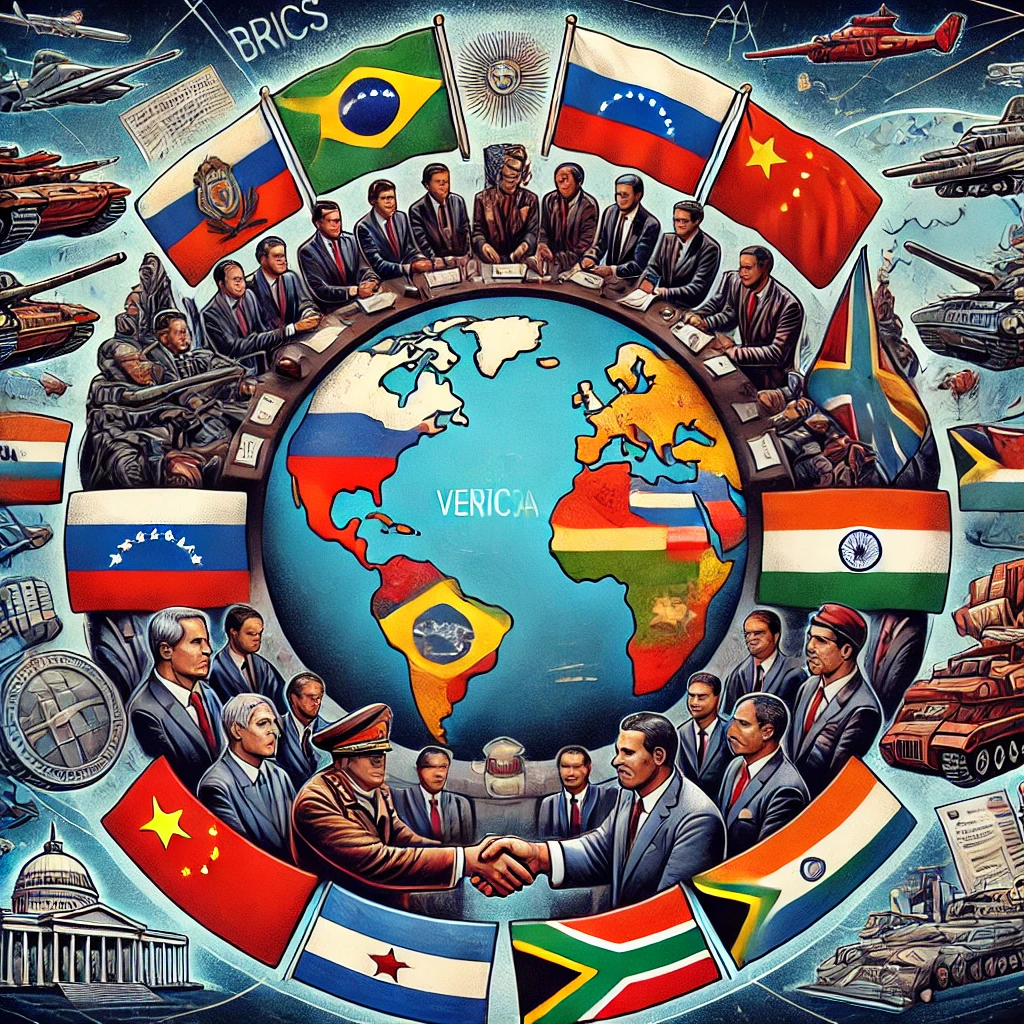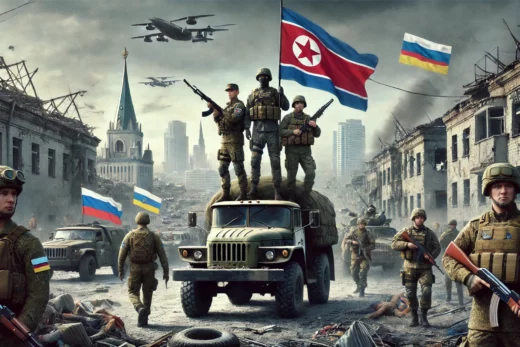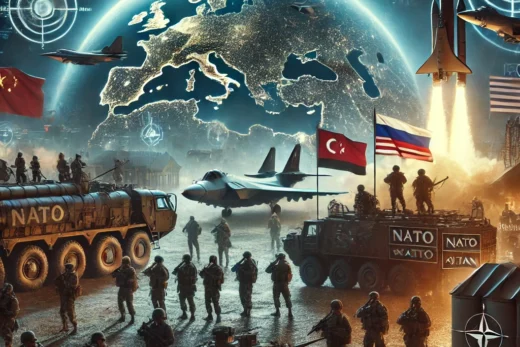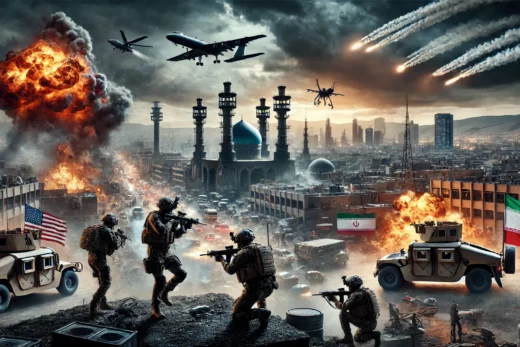
The BRICS grouping, comprising Brazil, Russia, India, China, and South Africa, has recently faced notable tensions and divergences among its member states. These developments, including China’s stance on Venezuela’s election, Malaysia’s ambitions to join BRICS, and Russia’s current chairmanship, highlight the complexities and evolving dynamics within the organization. This essay will explore these developments, analyze their implications, and provide a comprehensive understanding of the current state of BRICS.
Section 1: Tensions within BRICS over Venezuela’s Election
The contested election results in Venezuela have created a significant rift within BRICS. China has refused to recognize the disputed results, diverging from its BRICS allies such as Brazil, Chile, Peru, Ecuador, and Uruguay. This move has strained relationships within the group, with South Africa and India yet to take a definitive stance on the Maduro government, while Russia and Iran have aligned with China.
Supporting Evidence:
- Chinese Premier Li Qiang stated, “China will give 500 million yuan (64 million euros) for a BRICS economic and technology cooperation plan,” emphasizing China’s commitment to BRICS despite internal disagreements.
- The divergent responses to Venezuela’s election underscore the geopolitical and ideological differences among BRICS members, potentially weakening the group’s cohesion.
Section 2: Malaysia’s Ambitions to Join BRICS
Malaysia’s Prime Minister Anwar Ibrahim has expressed a strong interest in joining BRICS, citing shared ideological concerns and a commitment to economic justice for developing countries. Malaysia’s potential membership raises questions about the group’s future alignment and its relationship with Western powers.
Supporting Evidence:
- Anwar Ibrahim’s comments reflect a growing desire among developing nations to seek alternatives to Western-dominated economic structures.
- Malaysia’s inclusion could shift BRICS’ dynamics, potentially enhancing its global influence while also complicating its interactions with Western countries.
Section 3: Russia’s Chairmanship and BRICS Activities
As the current chair of BRICS, Russia has been instrumental in organizing various ministerial meetings and events throughout 2024. Notably, the 14th BRICS Economic and Foreign Trade Ministers’ Meeting was held in Moscow on July 26, with the BRICS Industry Ministers’ Meeting scheduled for August 16.
Supporting Evidence:
- Russian Foreign Minister Sergei Lavrov emphasized, “BRICS seeks to rebalance the future world order and counter ‘colonial ambitions’,” highlighting the group’s broader strategic objectives.
- Russia’s active role in BRICS during its chairmanship illustrates its commitment to strengthening the group’s economic cooperation and global influence.
Section 4: Internal Divisions and Their Implications
The internal divisions within BRICS, particularly over Venezuela’s election, Malaysia’s potential membership, and varying national interests, pose significant challenges to the group’s unity and effectiveness.
Supporting Evidence:
- An unnamed Indian diplomat noted, “The Himalayan border dispute has cast a shadow over ties between India and China,” exemplifying the underlying tensions that can disrupt BRICS’ solidarity.
- These divisions could undermine BRICS’ ability to present a unified front on global issues, impacting its credibility and negotiating power.
Detailed Breakdown: Tensions within BRICS over Venezuela’s Election
Importance of Tensions within BRICS over Venezuela’s Election
-
Geopolitical Significance:
- Venezuela is a strategic ally in Latin America with substantial oil reserves.
- Disagreements over its political legitimacy highlight the differing geopolitical priorities among BRICS members.
- China’s refusal to recognize the disputed election results, despite support from Russia and Iran, emphasizes a growing ideological split within BRICS.
-
Impact on BRICS Cohesion:
- The rift over Venezuela demonstrates the challenges BRICS faces in maintaining a unified stance on global issues.
- South Africa and India’s ambiguous position further complicates the group’s ability to act cohesively.
- This division could weaken BRICS’ collective bargaining power in international forums.
-
Implications for Global Governance:
- The disagreement over Venezuela reflects broader questions about international norms and the legitimacy of elections.
- It underscores the contrasting views on sovereignty and non-interference among BRICS members.
- The situation illustrates the difficulties in forging a consistent policy approach within a diverse group like BRICS.
-
Economic and Diplomatic Repercussions:
- Economic ties with Venezuela, especially in the energy sector, are significant for BRICS countries.
- Diplomatic relations could be strained as countries choose sides, impacting bilateral and multilateral agreements.
- The instability in Venezuela could lead to regional disruptions affecting trade and investment.
-
Influence on Regional Politics in Latin America:
- Brazil’s stance against Maduro aligns it with other Latin American nations opposing his regime.
- China’s position could be seen as an attempt to expand its influence in the region, countering U.S. dominance.
- The split within BRICS could lead to shifts in regional alliances and power dynamics.
Potential to Spark Conflict between BRICS and NATO
-
Escalation of Diplomatic Tensions:
- Divergent stances on Venezuela could escalate into broader diplomatic conflicts between BRICS and NATO members.
- NATO’s support for democratic processes contrasts with China and Russia’s approach to sovereignty, creating ideological confrontations.
-
Military Involvement and Proxy Conflicts:
- NATO’s historical involvement in Latin America, primarily through the United States, could lead to a proxy conflict with BRICS nations.
- Russia’s military support for Venezuela, combined with China’s economic investments, might provoke a stronger NATO response.
-
Economic Sanctions and Counter-Sanctions:
- NATO countries could impose sanctions on BRICS members supporting Maduro, leading to retaliatory measures.
- Such economic warfare could escalate tensions, potentially leading to military confrontations if vital interests are threatened.
-
Security Alliances and Arms Race:
- The crisis could prompt BRICS nations to strengthen their military alliances, perceiving NATO actions as direct threats.
- An arms race in the region could ensue, with BRICS and NATO nations increasing military spending and strategic deployments.
-
Cyber Warfare and Information Battles:
- Both BRICS and NATO could engage in cyber warfare, targeting each other’s infrastructure to gain strategic advantages.
- Propaganda and misinformation campaigns could further inflame public sentiments, pushing nations closer to conflict.
-
Humanitarian Interventions and Justifications for War:
- NATO could justify military intervention in Venezuela on humanitarian grounds, citing democratic principles and human rights.
- BRICS nations, particularly Russia and China, might counter with their own justifications for supporting Maduro, escalating to direct confrontations.
Key Takeaways
- BRICS faces significant internal divisions, particularly over the disputed election results in Venezuela.
- Malaysia’s potential membership could alter the group’s dynamics and raise concerns about its alignment with Western powers.
- Russia’s chairmanship is driving various ministerial meetings and events, emphasizing the group’s focus on economic cooperation and counterbalancing Western influence.
By addressing these issues, BRICS can work towards greater unity and effectiveness in its global endeavors.
Conclusion
The tensions within BRICS over Venezuela’s election are crucial due to their implications for geopolitical stability, group cohesion, and global governance. These internal divisions, alongside differing national interests and the potential inclusion of new members like Malaysia, highlight the complexities and challenges facing the group. While these tensions alone may not directly lead to a war between BRICS and NATO, they contribute to a volatile environment where misunderstandings, proxy conflicts, and strategic miscalculations could potentially spark larger conflicts. Moving forward, BRICS will need to navigate these challenges carefully to maintain its cohesion, enhance its role in shaping the global order, and prevent an escalation into warfare through diplomatic channels and multilateral dialogue.



